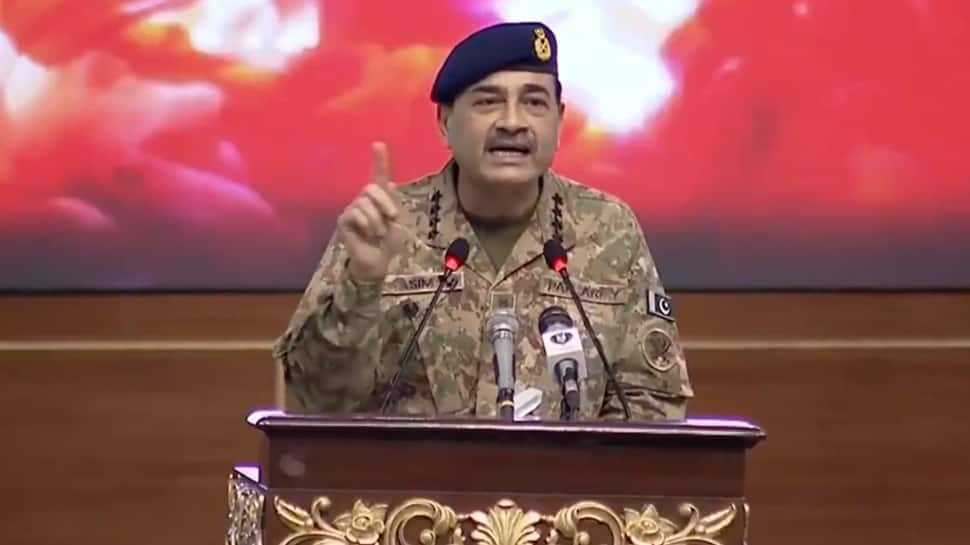Pakistan’s political landscape has long been dominated by its military establishment, a reality that is well-known to observers of the country’s tumultuous history. Despite periodic democratic exercises marked by elections, rallies, and the installation of prime ministers promising reform, true power has persistently resided with the military. This entrenched influence is most evident in the garrison town of Rawalpindi, where the army effectively scripts the nation’s political and economic direction, often sidelining civilian authority.
A recent report by the Financial Times underscores this dynamic. Pakistani officials have proposed a plan for the United States to assist in building a port at Pasni, a modest fishing town on the Arabian Sea. Ostensibly, this initiative aims to transform Pasni into an export hub for critical minerals, signifying economic development. However, the real import lies in the source of the proposal: it came not from the civilian government but from advisers to Field Marshal Asim Munir, the powerful Army Chief of Pakistan. This move is emblematic of the military’s pervasive role, reiterating the longstanding pattern of generals stepping in when elected leaders falter, reshaping governance structures, and asserting their ultimate control.
The military’s dominance in Pakistan predates the country’s democratic institutions. Emerging from the chaos of Partition and shaped by the early conflict with India over Kashmir, Pakistan was born into a climate of insecurity. This insecurity was not merely a challenge but became the foundational principle organizing the state’s power structure. The army quickly emerged as the most trusted, disciplined, and well-funded institution, soon becoming the most politically influential. Meanwhile, civilian politics fractured into personality-driven factions and patronage networks. Bureaucracies weakened, courts deferred to other powers, and political parties splintered along ethnic lines. In contrast, the military remained disciplined and united, viewing itself as the nation’s sole competent custodian. This self-perception justified its habitual interventions in civilian affairs.
By 1958, military coups had become normalized under General Ayub Khan. His successors—Yahya Khan, Zia-ul-Haq, and Pervez Musharraf—each staged their own takeovers, framing them as acts of patriotic duty. They rewrote the constitution repeatedly, institutionalizing a system where civilian governments appeared temporary and the military’s role seemed permanent. This legacy has left Pakistan with an informal yet powerful “state within a state,” where the military not only commands the national budget but also controls extensive business interests.
Unlike many militaries worldwide, Pakistan’s armed forces are deeply enmeshed in the country’s economy. Through entities like the Fauji Foundation, Bahria Foundation, and Army Welfare Trust, the military owns enterprises spanning cement, banking, real estate, and fertilizers. Academic Ayesha Siddiqa has estimated that these holdings constitute more than seven percent of Pakistan’s GDP. This economic clout is reflected starkly in the national budget: for the fiscal year 2024–25, Pakistan allocated approximately 1.7 trillion rupees to defense—almost twice the combined spending on health and education. In a country where 40 percent of the population lives below the poverty line, according to the World Bank, this disparity highlights the military’s privileged status and the civilian state’s relative neglect.
The political formula that defines Pakistan today was significantly shaped by Pervez Musharraf’s 1999 coup. Beyond simply toppling the government, Musharraf introduced a model of “controlled democracy,” where civilian leaders operate under the watchful eye and influence of the military. This hybrid system has become Pakistan’s default. More than two decades later, it remains entrenched. Imran Khan’s rise to power in 2018, widely seen as having the army’s tacit approval, and his subsequent fall in 2022, shadowed by military influence, illustrate this pattern. Formal institutions such as the judiciary and parliament play their roles on the stage, but the script is authored by the military establishment.
Under the current leadership of Field Marshal Asim Munir, this choreography continues unabated. The army is deeply involved in shaping economic policy, security operations, and foreign relations. The Pasni port initiative is a recent example, echoing Musharraf’s post-9/11 strategy of courting Washington through strategic cooperation in exchange for financial and diplomatic support. This approach underscores the military’s ongoing role in managing Pakistan’s international relationships to maintain its indispensability.
The civilian political sphere suffers heavily under this arrangement. Not a single prime minister in

